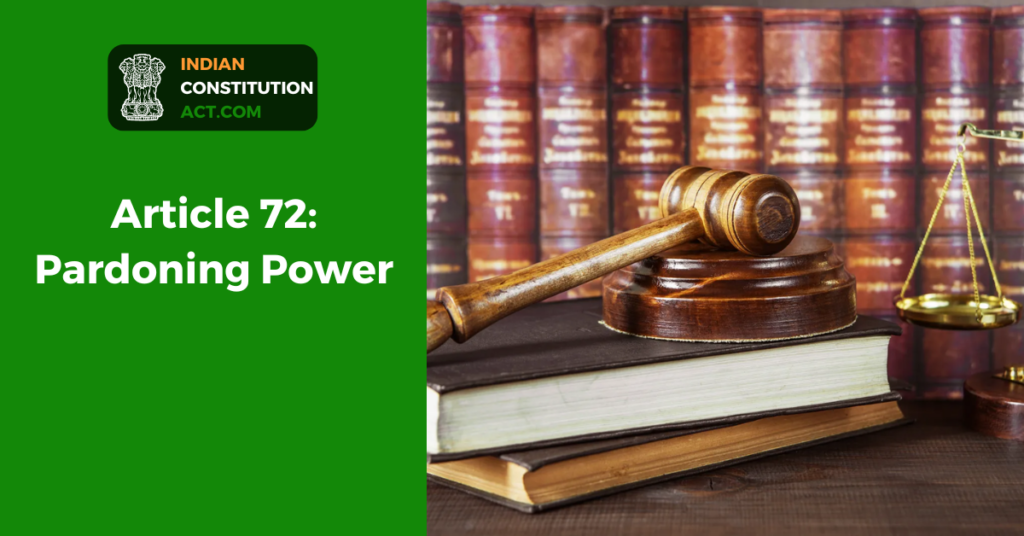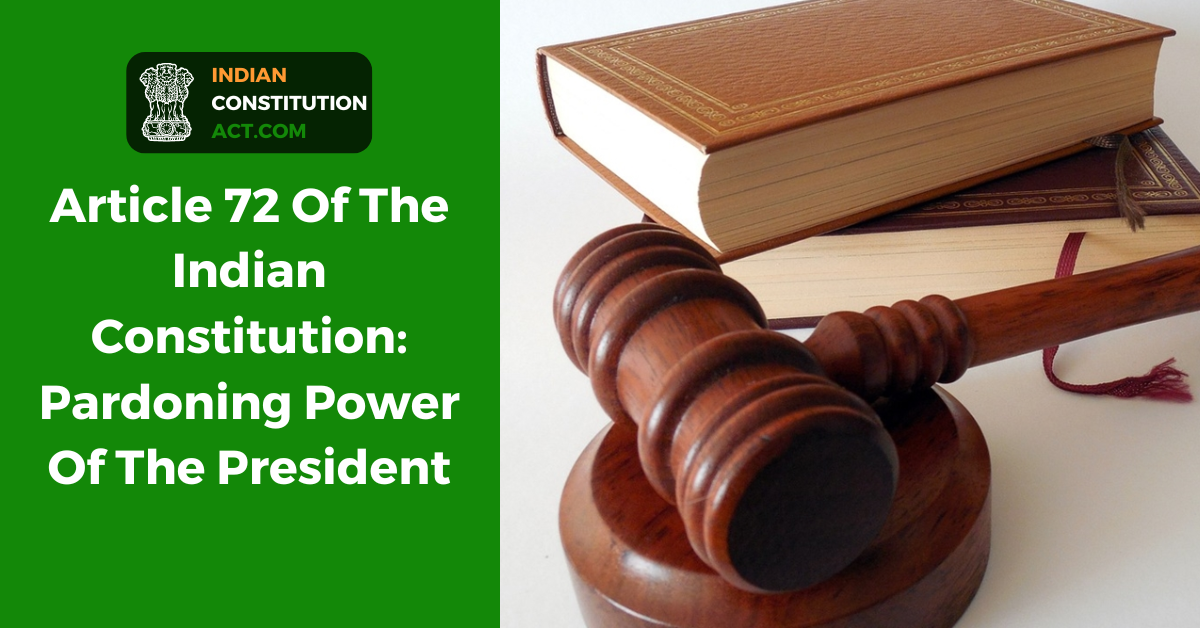On 26 January 1950, the Indian Constitution was implemented in our country. In simple words, it is a combination of a set of rules in a government, organization, or society that define how things will work. At present, there are 448 articles in the constitution and today we are going to discuss Article 72 of the Indian Constitution as it maintains the most important function of the Constitution.
Table of Contents
What Is Article 72 In Simple Words?
Article 72 of the Indian Constitution states the cases in which the President can use his power to reduce or commute the sentence of an offender. So let us know in which circumstances this is possible and in which the President can’t do so.
Case 1: In any such case where the culprit has been sentenced by a Court Martial, let us assume that the sentence has been given for 25 years. A person convicted by a military court is called a court martial. In this case, the President can cancel the sentence, pardon it for some time, or reduce it. This can only happen in court martial cases.
For Example: Let us assume that a soldier did not obey his senior during the war and because of that two soldiers lost their lives. That soldier was court-martialled and sentenced to 10 years of imprisonment. In this case, if the President wishes, he or she can reduce the punishment of the soldier, pardon him, or give him relief for some time.
Case 2: In cases where the power of the central government is involved, such as someone has evaded taxes or someone has shot someone, the President can reduce the sentence, cancel it altogether, or grant a reprieve from punishment for some time.
Case 3: If a common man is sentenced to death by the court, then in this case, if the President wishes, he can reduce the punishment of that person, can also get the punishment removed, or can give relief from the punishment for some time.
Also read: Article 69 of the Indian Constitution: Vice-President’s Oath Or Affirmation
Article 72: Pardoning Power

The president has the authority to commute sentences, postpone, give reprieves, or remit penalties to those who have been convicted of crimes:
- in all situations where a Court Martial renders the punishment or sentence;
- in all situations when the punishment or sentence is for a violation of any law pertaining to a subject under the Union’s executive power;
- in all situations where a death sentence is imposed.
Pardoning Power Of The President
Article 72 empowers the President the power to grant remission, respite, commutation, pardon, and reprieve the punishment of any individual convicted of any violation or crime. We have discussed and elaborated all these powers thoroughly below:
- Pardon: In this, whatever punishment is given to the offender is pardoned. It completely releases the offender from all punishments, penalties, and disqualifications.
- Commutation: If a person is sentenced to death and his sentence is changed to life imprisonment, it is known as commutation.
- Remission: This means reducing the punishment. For example, if a person is sentenced to 6 years of imprisonment and the sentence is reduced to 3 years, it is called remission.
